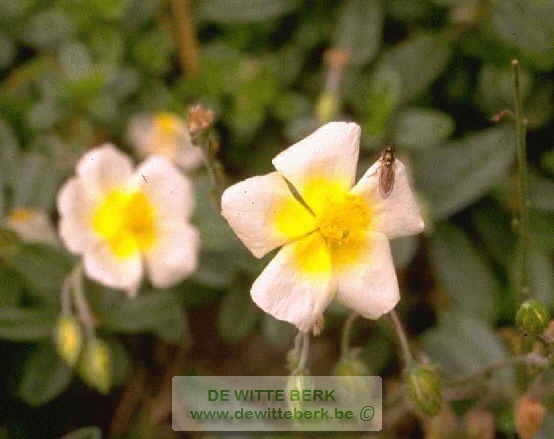Categorieen
- abelia
- acer
- amelanchier
- aronia
- buddleja
- callicarpa
- calycanthus
- caragana
- carpinus
- caryopteris
- catalpa
- ceanothus
- cephalanthus
- cercis
- choisya
- clethra
- cornus
- corylopsis
- corylus
- cotinus
- cotoneaster
- crataegus
- deutzia
- diervilla
- edgeworthia
- elaeagnus
- euonymus
- exochorda
- fagus
- fatsia
- forsythia
- fothergilla
- fuchsia
- gleditsia
- hamamelis
- hedera
- heptacodium
- hibiscus
- hydrangea
- hypericum
- itea
- kolkwitzia
- leucothoe
- ligustrum
- liquidambar
- liriodendron
- lonicera
- loropetalum
- magnolia
- mahonia
- malus
- morus
- nandina
- osmanthus
- parrotia
- perovskia
- philadelphus
- photinia
- physocarpus
- pieris
- platanus
- potentilla
- prunus
- pyrus
- rhus
- ribes
- salix
- sambucus
- skimmia
- sorbaria
- spiraea
- stephanandra
- stewartia
- styrax
- syringa
- tamarix
- tetrapanax
- tilia
- viburnum
- weigela
- acaena
- acanthus
- agapanthus
- agastache
- ajuga
- alchemilla
- allium
- alyssum
- amsonia
- anaphalis
- anchusa
- anemone
- antennaria
- artemisia
- aruncus
- aster
- astilbe
- aubrieta
- bergenia
- brunnera
- calamintha
- campanula
- centaurea
- centranthus
- ceratostigma
- chelone
- chrysanthemum
- cimicifuga
- coreopsis
- darmera
- delphinium
- dianthus
- doronicum
- echinacea
- echinops
- erigeron
- eupatorium
- euphorbia
- filipendula
- fragaria
- gaillardia
- galium
- gaura
- geranium
- geum
- gypsophila
- helenium
- helianthemum
- helianthus
- helleborus
- hemerocallis
- heuchera
- hosta
- houstonia
- iberis
- inula
- iris
- isotoma
- kalimeris
- knautia
- kniphofia
- lamiastrum
- lamium
- lavandula
- lewisia
- liatris
- ligularia
- liriope
- lupinus
- lysimachia
- lythrum
- nepeta
- oenothera
- ophiopogon
- pachysandra
- penstemon
- persicaria
- phlomis
- phlox
- physalis
- physostegia
- prunella
- pulmonaria
- pulsatilla
- rodgersia
- rudbeckia
- salvia
- saponaria
- sedum
- solidago
- stachys
- symphytum
- teucrium
- thalictrum
- thymus
- tradescantia
- verbena
- veronica
- vinca
- waldsteinia
- abelia
- acer
- amelanchier
- aronia
- buddleja
- callicarpa
- calycanthus
- caragana
- carpinus
- caryopteris
- catalpa
- ceanothus
- cephalanthus
- cercis
- choisya
- clethra
- cornus
- corylopsis
- corylus
- cotinus
- cotoneaster
- crataegus
- deutzia
- diervilla
- edgeworthia
- elaeagnus
- euonymus
- exochorda
- fagus
- fatsia
- forsythia
- fothergilla
- fuchsia
- gleditsia
- hamamelis
- hedera
- heptacodium
- hibiscus
- hydrangea
- hypericum
- itea
- kolkwitzia
- leucothoe
- ligustrum
- liquidambar
- liriodendron
- lonicera
- loropetalum
- magnolia
- mahonia
- malus
- morus
- nandina
- osmanthus
- parrotia
- perovskia
- philadelphus
- photinia
- physocarpus
- pieris
- platanus
- potentilla
- prunus
- pyrus
- rhus
- ribes
- salix
- sambucus
- skimmia
- sorbaria
- spiraea
- stephanandra
- stewartia
- styrax
- syringa
- tamarix
- tetrapanax
- tilia
- viburnum
- weigela
- acaena
- acanthus
- agapanthus
- agastache
- ajuga
- alchemilla
- allium
- alyssum
- amsonia
- anaphalis
- anchusa
- anemone
- antennaria
- artemisia
- aruncus
- aster
- astilbe
- aubrieta
- bergenia
- brunnera
- calamintha
- campanula
- centaurea
- centranthus
- ceratostigma
- chelone
- chrysanthemum
- cimicifuga
- coreopsis
- darmera
- delphinium
- dianthus
- doronicum
- echinacea
- echinops
- erigeron
- eupatorium
- euphorbia
- filipendula
- fragaria
- gaillardia
- galium
- gaura
- geranium
- geum
- gypsophila
- helenium
- helianthemum
- helianthus
- helleborus
- hemerocallis
- heuchera
- hosta
- houstonia
- iberis
- inula
- iris
- isotoma
- kalimeris
- knautia
- kniphofia
- lamiastrum
- lamium
- lavandula
- lewisia
- liatris
- ligularia
- liriope
- lupinus
- lysimachia
- lythrum
- nepeta
- oenothera
- ophiopogon
- pachysandra
- penstemon
- persicaria
- phlomis
- phlox
- physalis
- physostegia
- prunella
- pulmonaria
- pulsatilla
- rodgersia
- rudbeckia
- salvia
- saponaria
- sedum
- solidago
- stachys
- symphytum
- teucrium
- thalictrum
- thymus
- tradescantia
- verbena
- veronica
- vinca
- waldsteinia
Helianthemum ′Elfenbeinglanz′
€ 2,20
| Maat | Eenheidsprijs | >24 | >100 |
|---|
| P9 | € 2.20 | € 1.90 | € 1.68 |
|---|
| Maatcode | Omschrijving | Maatcode | Omschrijving |
|---|---|---|---|
| 020.40 | hoogte of breedte bij aankoop: 20 - 40 cm | CO | plant in container |
| 040.60 | hoogte of breedte bij aankoop: 40 - 60 cm | C | plant in container |
| 060.80 | hoogte of breedte bij aankoop: 60 - 80 cm | C2...C4.. | plant in 2..4 liter pot |
| 080.100 | hoogte of breedte bij aankoop: 80 - 100 cm | CSTR | struik in container |
| 100.125 | hoogte of breedte bij aankoop: 100 - 125 cm | CHS08.10 | hoogstammige boom in pot; stamhoogte: 220 cm; stamomtrek: 8/10 cm |
| 125.150 | hoogte of breedte bij aankoop: 125 - 150 cm | BOS | bossig struikje, grootte in cm |
| 150.175 | hoogte of breedte bij aankoop: 150 - 175 cm | BW | jonge haagplant met blote wortel, grootte in cm |
| 175.200 | hoogte of breedte bij aankoop: 175 - 200 cm | STAM | plant met stamlengte van ……cm |
| 200.250 | hoogte of breedte bij aankoop: 200 - 250 cm | P9 | plant in pot van 9 cm |
| 250.300 | hoogte of breedte bij aankoop: 250 - 300 cm | P12 | plant in pot van 12 cm |
| 300.350 | hoogte of breedte bij aankoop: 300 - 350 cm | KLIM | klimplant |
| CO5L | plant in pot van 5 L | ||
| HS06.08 | hoogstammige boom met blote wortel; stamhoogte: 220 cm; stamomtrek: 6/8 cm | ||
| HS08.10 | hoogstammige boom met blote wortel; stamhoogte: 220 cm; stamomtrek: 8/10 cm | V150.175 | geveerde, gevormde haagplant met lengte….. |
| HS10.12 | hoogstammige boom met blote wortel; stamhoogte: 220 cm; stamomtrek: 10/12 cm | V175.200 | geveerde, gevormde haagplant met lengte….. |
| HS12.14 | hoogstammige boom met blote wortel; stamhoogte: 220 cm; stamomtrek: 12/14 cm | V200.250 | geveerde, gevormde haagplant met lengte….. |
| HS14.16 | hoogstammige boom met blote wortel; stamhoogte: 220 cm; stamomtrek: 14/16 cm | V250.300 | geveerde, gevormde haagplant met lengte….. |
| DRK16.18 | hoogstammige boom met draadkluit; stamhoogte: 220 cm; stamomtrek: 16/18 cm | ||
| DRK18.20 | hoogstammige boom met draadkluit; stamhoogte: 220 cm; stamomtrek: 18/20 cm | ZCSTR | zware struik in pot |
| DRK20.25 | hoogstammige boom met draadkluit; stamhoogte: 220 cm; stamomtrek: 20/25 cm | LEI | leivorm bij fruitgoed |
| DRK25.30 | hoogstammige boom met draadkluit; stamhoogte: 220 cm; stamomtrek: 25/30 cm | LEI 2V | Leivorm bij fruitgoed: dubbel V |
| LEI 2U | Leivorm bij fruitgoed: dubbel U | ||
| DRKL | boom met draadkluit | ||
| STR3/5 | struik, blote wortel, 3-5 takken | ||
| STR5/8 | struik, blote wortel, 5-8 takken | ||
| KL | boom met kluit | ||
| LEI12.16 | voorgeleide boom met voorgeleide takken, meestal 4 etages op 200-250-300-350cm | ||
| DAK12.14 | voorgeleide boom met dakstructuur, stamhoogte 240-260cm | ||
| nbsp; | |||
| C1.5 ST | Plant in 1,5L pot Gestokt : Aangebonden aan bamboestok |
WB-PALLET waarborg pallet
<100M2TRAN transportkosten: minder dan 100 m2
| Bloemkleur |
|
|---|---|
| Bloeimaand |
|
| Categorie |
|
| Hoogte volwassen plant |
|
| Snelselectie |
|
| Bloemvorm |
|
| Grondsoort |
|
| Speciaal |
|
| Vormen |
|
| Standplaats |
|
| Afstand |
35 plantafstand |
Helianthemum ′Elfenbeinglanz′
De nederlandse naam is "Zonneroosje", familie van de Cistaceae. De bloemkleur is cremewit en de bloeitijd is van ca. juni tot en met augustus. De bladeren zijn groen en ongeveer 20 cm. hoog. De volwassen hoogte van deze vaste plant is ca. 25 cm. Verdraagt een temperatuur tot -20 gr. C. en blijft de gehele winter groen. De geadviseerde plantafstand is 30 cm. (8-11 st. per m2.)
Rotstuinplant.
Komt van oorsprong uit berggebieden, bruikbaar als bodembedekker in stapelmuurtjes en tussen stenen. Met een min of meer voedselrijke bodem. Geeft meestal geen problemen, heeft een goed kleureffekt, voor een zonnige plaats. In kleine groepjes of als eenling kunnen ook redelijk droog. Stelt meer eisen qua verzorging, vraagt meestal winterbescherming.
Onderhoud etc.:
Zonneroosjes groeien overal waar de grond droog is en een beetje kalk bevat. Strooi eventueel in de herfst wat kalk. Kort ieder voorjaar alle takjes zo in, dat onder de plaats waar u knipt nog wat groen zit. Knip absoluut niet na half augustus in. De plant is gevoelig voor strenge vorst. Dek eventueel in de winter af met wat blad en takken. De plant is te vermeerderen door het stekken van gerijpte scheutjes in de zomer en te zaaien.
Bemesting:
De nederlandse naam is "Zonneroosje", familie van de Cistaceae. De bloemkleur is cremewit en de bloeitijd is van ca. juni tot en met augustus. De bladeren zijn groen en ongeveer 20 cm. hoog. De volwassen hoogte van deze vaste plant is ca. 25 cm. Verdraagt een temperatuur tot -20 gr. C. en blijft de gehele winter groen. De geadviseerde plantafstand is 30 cm. (8-11 st. per m2.)
Rotstuinplant.
Komt van oorsprong uit berggebieden, bruikbaar als bodembedekker in stapelmuurtjes en tussen stenen. Met een min of meer voedselrijke bodem. Geeft meestal geen problemen, heeft een goed kleureffekt, voor een zonnige plaats. In kleine groepjes of als eenling kunnen ook redelijk droog. Stelt meer eisen qua verzorging, vraagt meestal winterbescherming.
Onderhoud etc.:
Zonneroosjes groeien overal waar de grond droog is en een beetje kalk bevat. Strooi eventueel in de herfst wat kalk. Kort ieder voorjaar alle takjes zo in, dat onder de plaats waar u knipt nog wat groen zit. Knip absoluut niet na half augustus in. De plant is gevoelig voor strenge vorst. Dek eventueel in de winter af met wat blad en takken. De plant is te vermeerderen door het stekken van gerijpte scheutjes in de zomer en te zaaien.
Bemesting:


